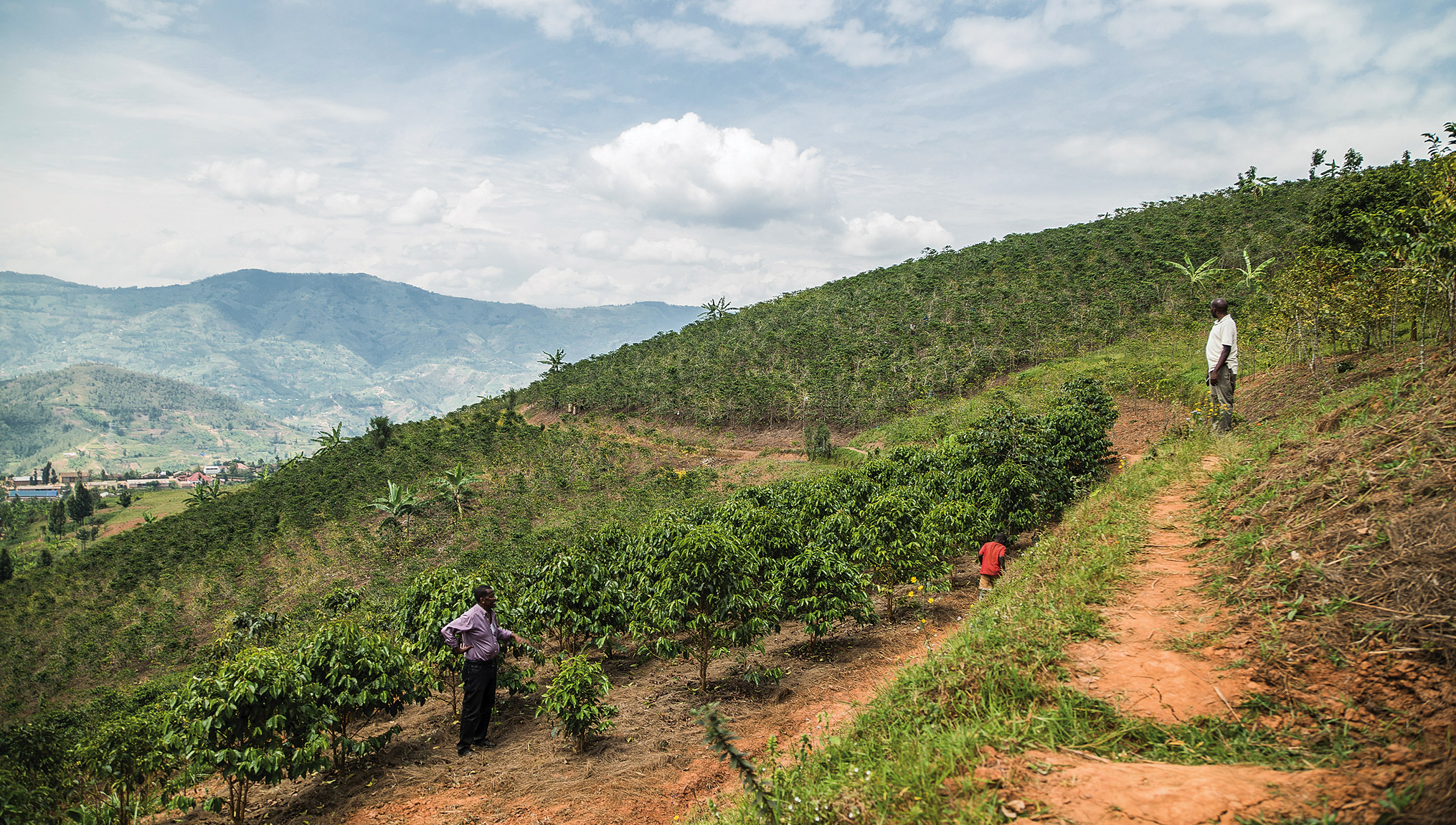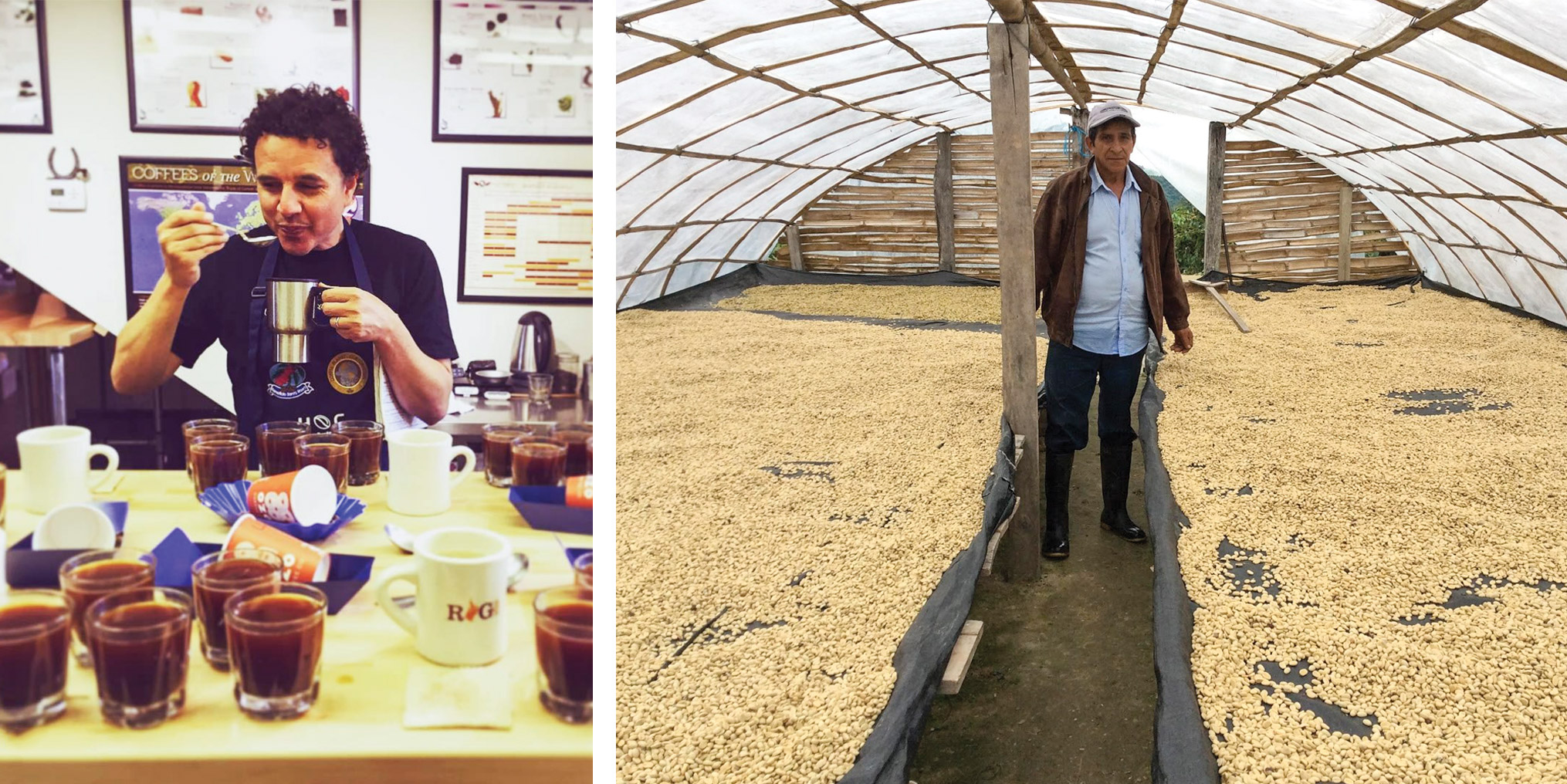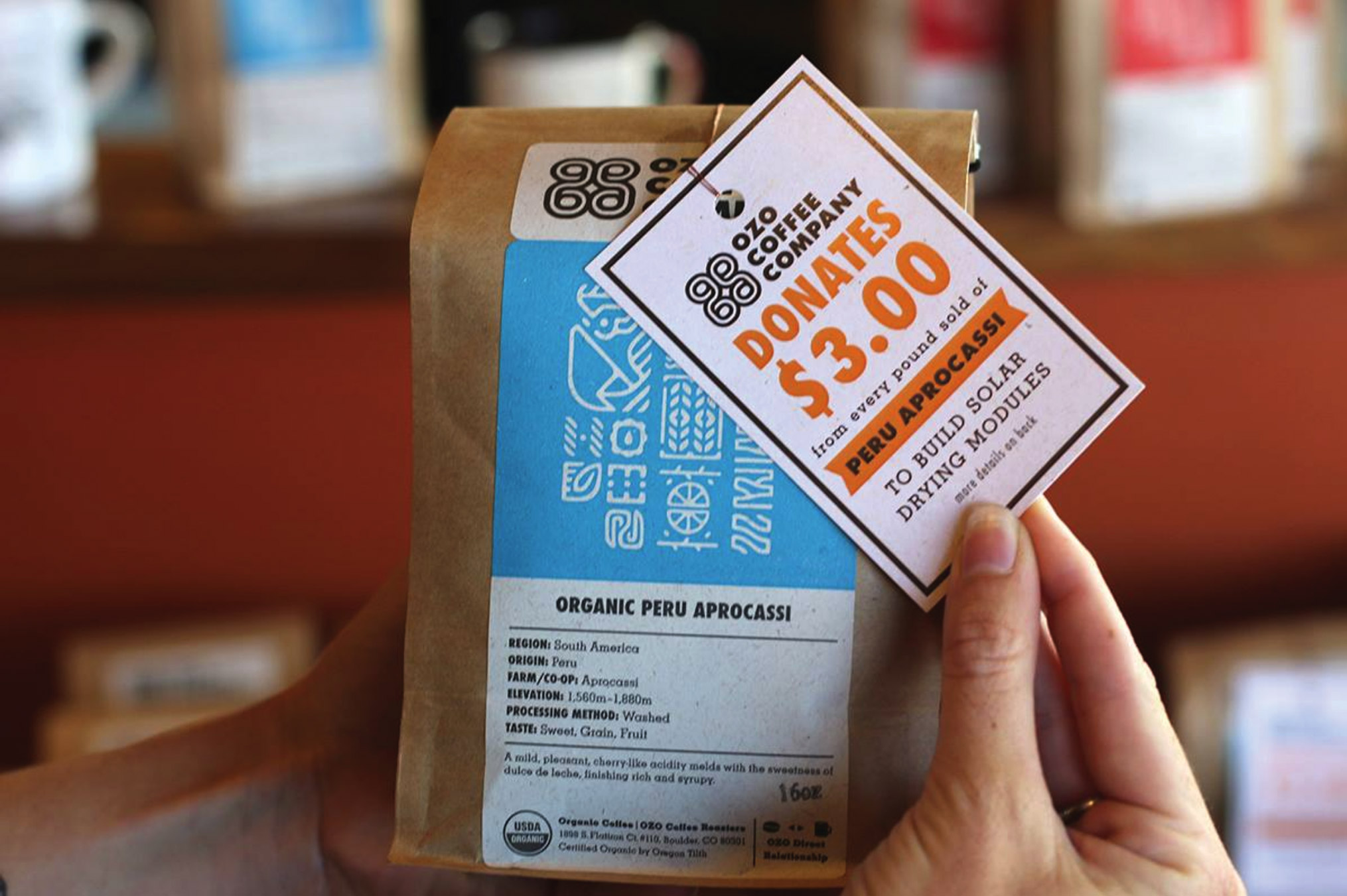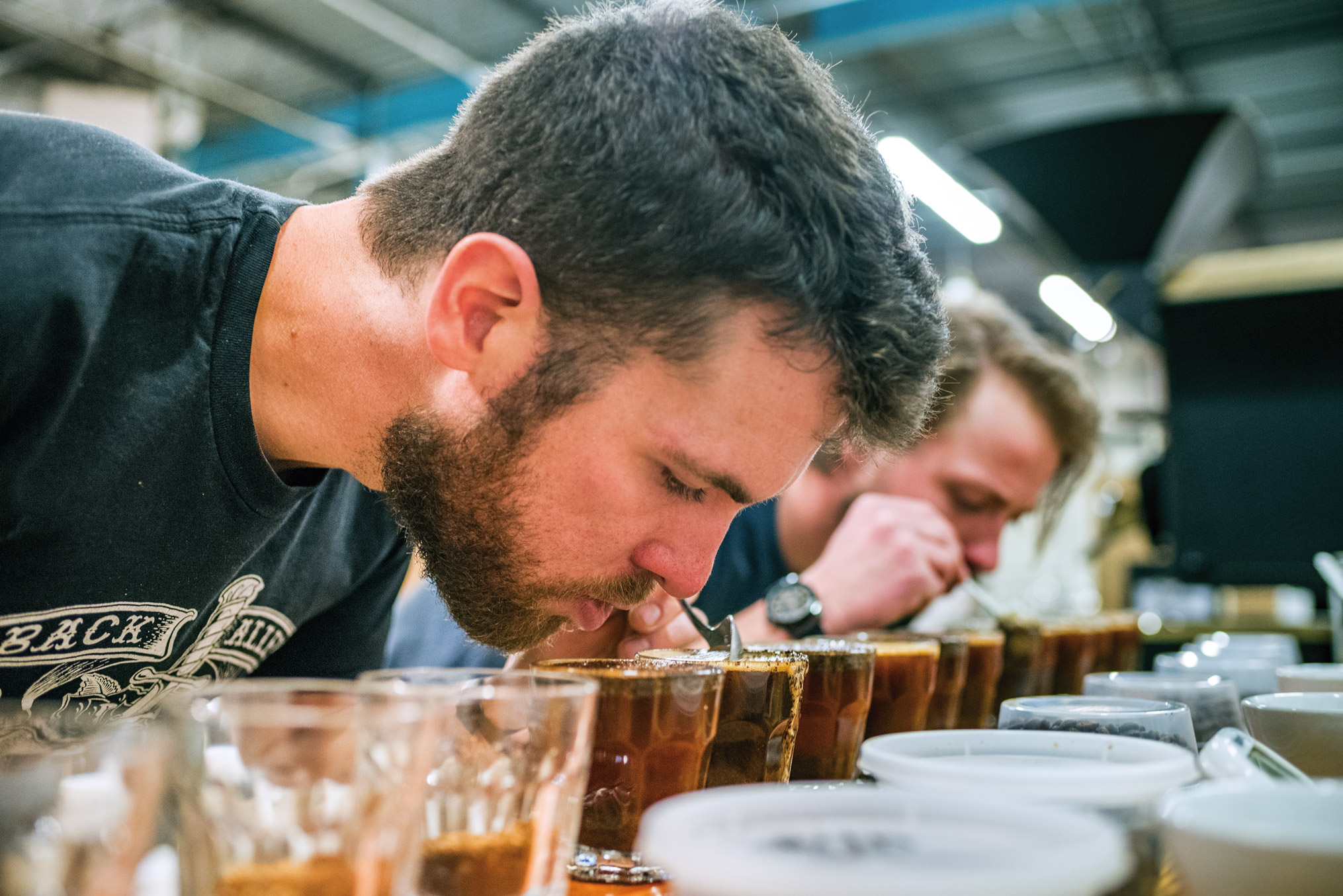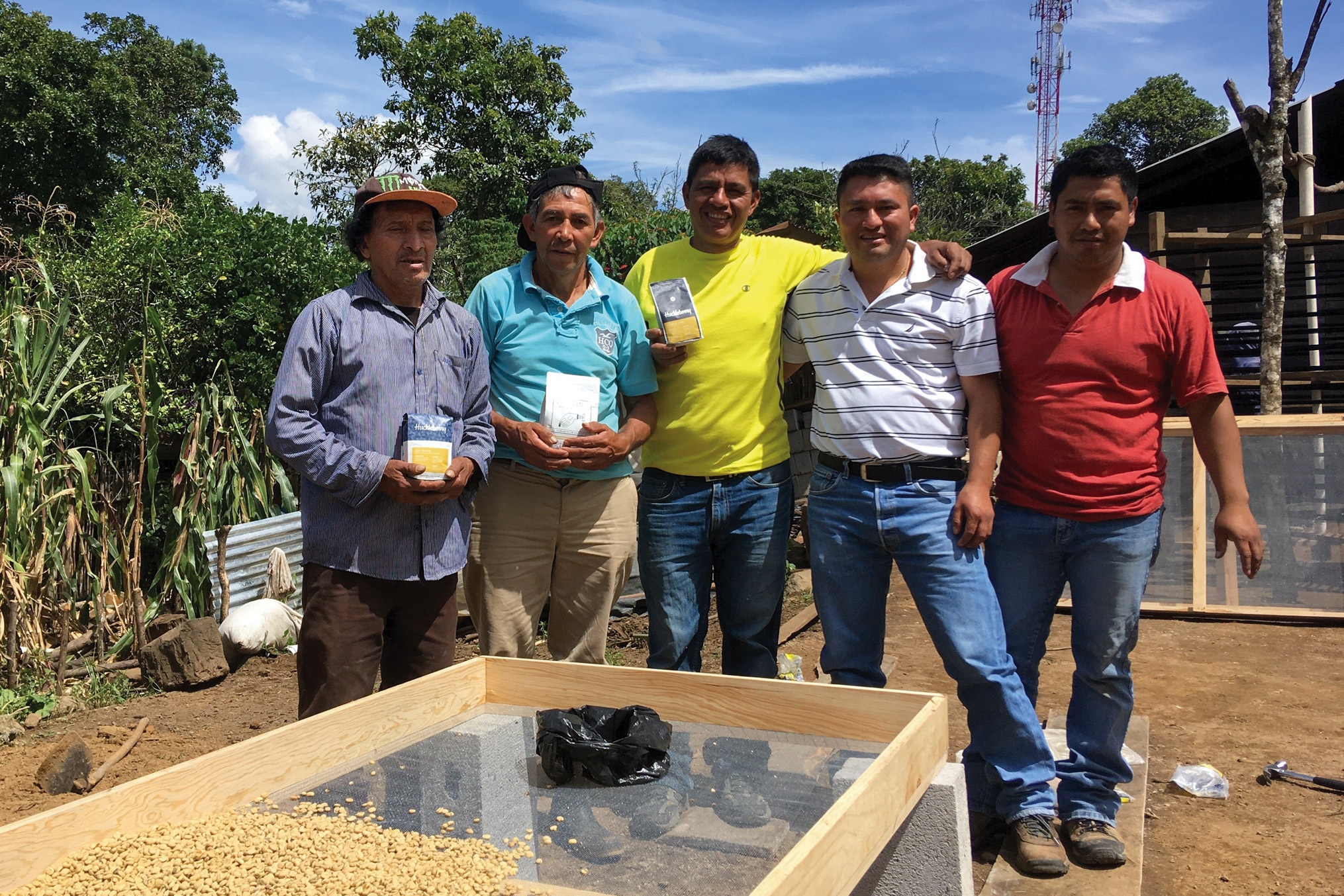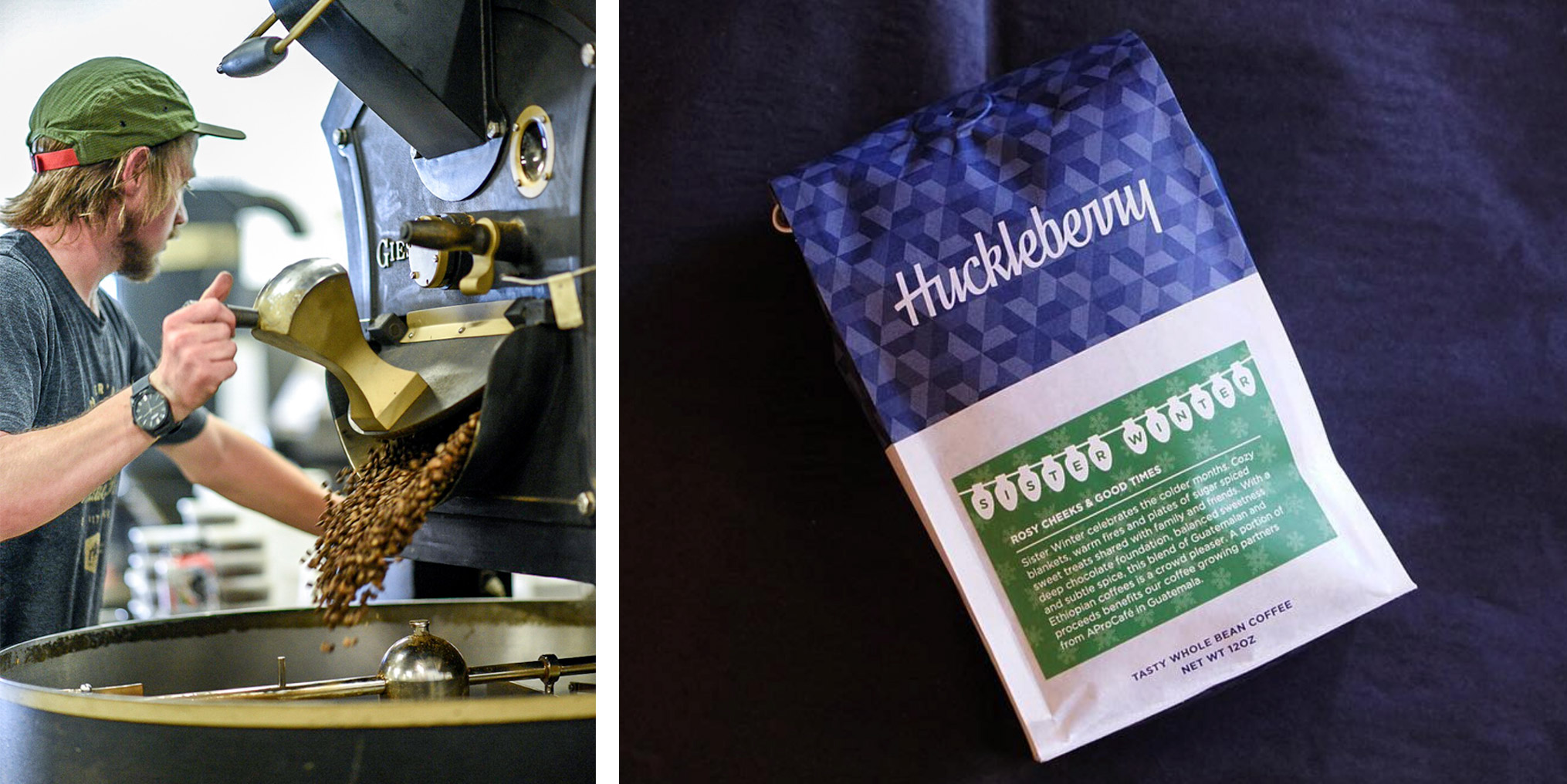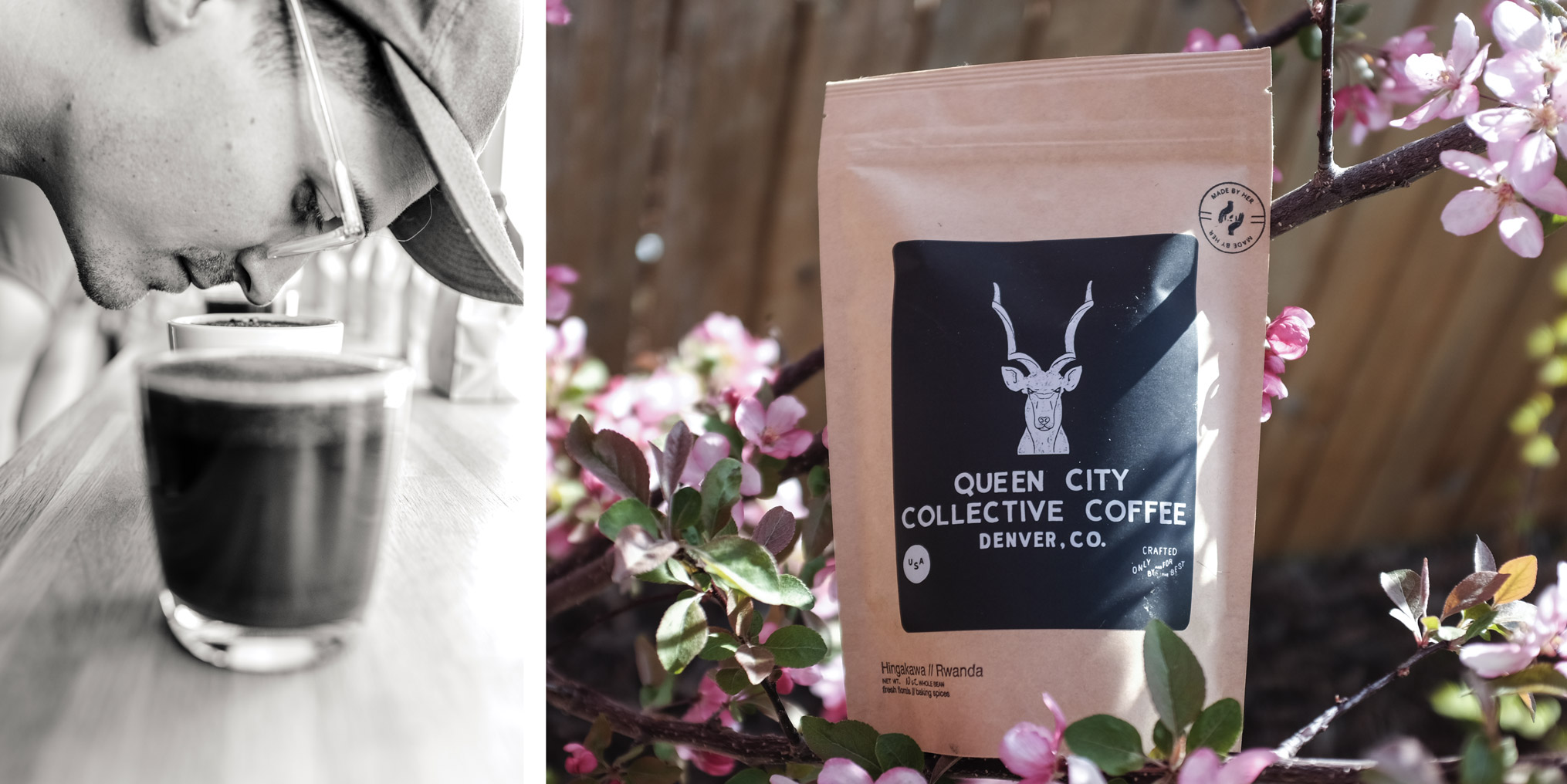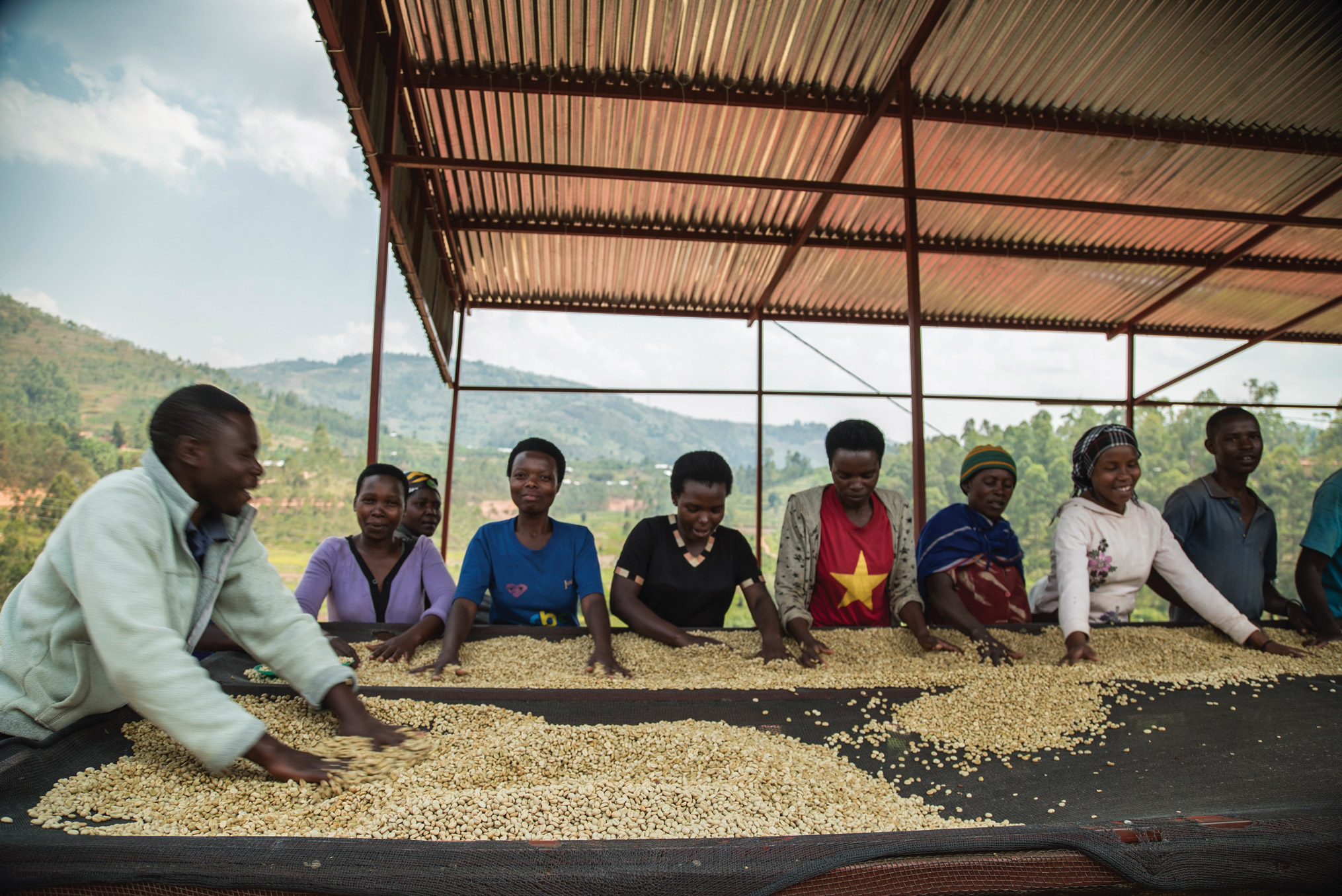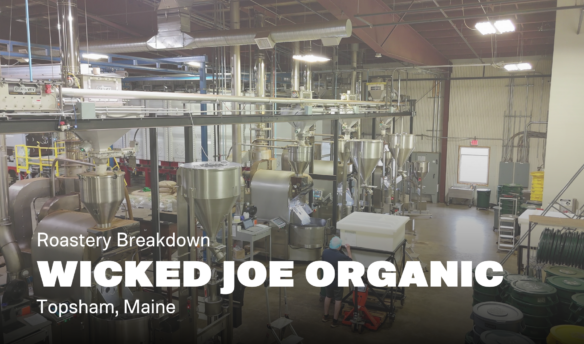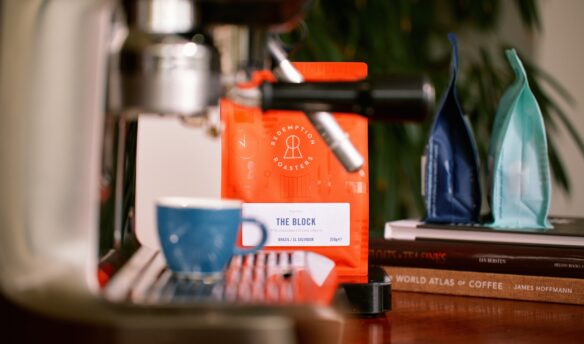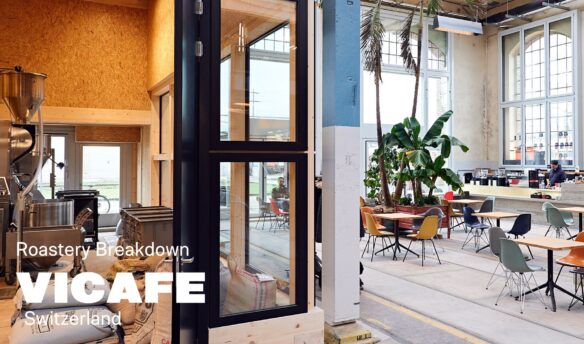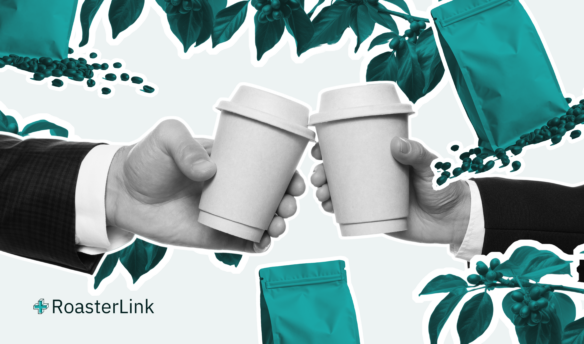[C]olorado is home to dozens of coffee roasters, although a few have set their sights on reaching even higher heights. These roasteries are funding projects that hope to make a meaningful impact at both ends of the supply chain, helping to strengthen the connection between local consumers and producers at origin.
Boulder-based Ozo Coffee Company, for instance, wanted to help a group of farmers in Peru improve their coffee-drying infrastructure, so the company created a campaign to raise funds through sales of a special roast, coupled with donations from café customers.
In Guatemala, a group of coffee farmers felt that raised drying beds would be a way to increase coffee quality, price, and land use. Huckleberry Roasters in Denver stepped in to help finance the effort through sales of its Sister Winter Blend.
Meanwhile, Queen City Collective Coffee partnered with a cooperative of female growers in Rwanda to build raised drying beds. Queen City enlisted the help of another coffee company, Corvus Coffee Roasters, as well as additional promotional support from their community.
In each case, the roasters worked with the producers to decide on the projects that would enhance the coffee’s quality and lead to higher earnings for the communities.
The three roasters ranged in size from large to small, and each had different experience levels, which goes to show that it is possible to integrate a producer-friendly model into your business at any stage of company development.
While each roaster experienced distinct challenges, all projects were fully funded, leading to increased optimism for the upcoming harvest seasons.
Ozo Coffee Company + Peru Aprocassi
At the 2014 “Let’s Talk Coffee” conference held in Panama, Ozo Coffee Company’s Director of Coffee Nolan Dutton was introduced to Peru Aprocassi cooperative’s general manager. The co-op represents 425 small-scale producers in Northern Peru, based in the communities of San Ignacio, Cajamarca, and Jaen.
As the relationship between Aprocassi and Ozo grew, Dutton learned about the challenges farmers encounter in coffee production. In Northern Peru, coffee is harvested and dried on patios during the rainy season—a difficult proposition considering that coffee requires 30 to 40 hours of sun exposure to achieve the required humidity level. Producers were disrupting the coffee drying process five or six times a day to protect it from rainfall. Sudden showers affected uniform drying, compromised moisture levels, and impacted the coffee’s shelf life during storage.
Due to these conditions, coffee was only exposed to direct sun in short intervals, prolonging the time required to dry the coffee and causing production backups. Inevitably, the coffee’s quality was compromised from interruption to drying, as well as a lack of consistent direct sunlight or constant airflow.
The co-op prepared a proposal requesting financial support to build 100 solar dryers, designed to give farmers more control over temperature, airflow, and humidity during drying. The co-op would also implement a quality control standardization process for the resulting product.
The proposal outlined how the solar dryers would increase quality and yield, while decreasing the cost of production, improve quality of life for coffee-growing families, and reduce environmental pollution, among other benefits. The project cost was estimated to be $22,000, with the co-op pledging $7,000 of its own money and the remaining $15,000 to come from Ozo. The goal was to have the solar dryers in place by the 2018 harvest and processing season.
In just six months, Ozo raised the funds through sales of a specially marked bag of coffee filled with beans that Aprocassi harvested and Ozo roasted. A portion of every bag sold, in addition to money donated by customers who opted to donate on their bill at Ozo’s four standalone cafés, went into the fund.
The funds were delivered in December 2017, and the co-op is currently working to implement the new drying process. Although there is optimism about the improved structures, it requires the farmers to learn new maintenance and care techniques. Even if the solar dryers are built well, the lack of experience may result in excessive or inconsistent drying until producers become accustomed to the new process.
Huckleberry Roasters + AProCafé
Head roaster Kevin Nealon got to know the associated growers of AProCafé nearly a decade ago while working on the shores of Lake Atitlán in Guatemala.
After returning to the United States in 2011 and joining Huckleberry Roasters in 2014, Nealon began sourcing green coffee from AProCafé. Through this partnership, Nealon instituted a fundraising program that would financially support the growers’ needs at the farm level. The program has three main objectives: to fight leaf rust with organic-approved treatments, to sponsor educational opportunities, and to build raised drying beds.
The decision to first integrate fundraising efforts into the roastery’s retail sales followed a recommendation from AProCafé’s agronomic advisor Danilo Cholotio. After seeing an increased prevalence of leaf rust in their region over the past decade, growers desired organic-approved treatments to fight off the disease so as not to compromise or damage their environment. Lake Atitlán is especially vulnerable to runoff from the bordering agricultural communities, so the coffee growers wanted to remain as eco-friendly as possible.
From the start of their partnership, Huckleberry has helped AProCafé purchase the inputs for an organic-approved calcium sulfate solution to fight leaf rust. “That actual physical purchase of chemical inputs is still the crux of the program,” Nealon says.
Given Cholotio’s academic background in agronomy and advisory role in AProCafé, Huckleberry sponsored him to attend the Specialty Coffee Association’s Avance sustainability conference in Guatemala City as an educational opportunity that might improve various sustainability efforts. Avance offered lectures and workshops that could address concerns and answer questions about alternative approaches in coffee production that lessen coffee’s environmental impact.
Another quality enhancement goal that was funded through the partnership was the implementation of raised drying beds. Traditionally, Guatemalan producers use the patio drying method, which renders large swathes of land useless for most of the year, because it is covered by a slab of concrete. Raised drying beds can be placed temporarily over soil, allowing land to remain vacant and usable for other crops between harvests. In addition to freeing up space, the raised beds dry coffee more evenly, improving the consistency and quality so growers can (hopefully) sell at higher prices. Drying beans on raised beds also extends the longevity of the coffee once it is exported and arrives at its destination abroad.
Fundraising efforts included a coffee produced by AProCafé and roasted by Huckleberry for its Sister Winter Blend. A portion of sales from each bag goes directly to the producers. With these funds, the cooperative purchased the raw ingredients needed to make a calcium sulfate solution. The organic solution, organic-approved by Mayacert, was applied to coffee trees between harvests, three times each year, to mitigate leaf rust. AProCafé was also able to build 20 drying beds for the start of the 2018 harvest.
Huckleberry also contributed more than $1,000 per harvest for three years, with the average ratio of proceeds to out-of-pocket contributions being 50/50. In addition, Huckleberry commits to paying premium prices for the raised drying bed coffee whether or not it matches the quality of the patio-dried coffee.
Adopting a new drying process does not guarantee the coffee’s quality will be better, so Huckleberry offered to cover financial costs if raised bed processing techniques weren’t executed correctly during the initial trial while the team was still learning.
Huckleberry plans to continue supporting AProCafé moving forward, and regroups with the association after each harvest to see what works and what doesn’t. Based on past success, the next project under consideration is a new depulper for some of the group’s more remote farmers, leading up to the 2018/19 harvest.
Queen City Collective Coffee + Corvus Coffee Roasters + Hingakawa Co-op in Rwanda
Scott Byington returned to his hometown of Denver and launched Queen City Collective Coffee in 2016 after spending nearly a decade immersed in the coffee trade and development work in both Africa and the United States.
As a newcomer to an established coffee scene, Byington went around town meeting his fellow roasting community and sharing information about the coffee he planned to source from Misozi, a Rwandan coffee cooperative aligned with an all-female producer group, Hingakawa. The women of Hingakawa had lost many men from their families and communities to the country’s 1994 genocide. They are still struggling today to restore their homes and lives through coffee production.
Byington asked the producers about potential options for improving the coffee’s quality, eventually settling on a proposal of $2,000 to build raised drying beds. The beds would expand the co-op’s drying capacity and support a process of reorganization that would lead to micro-lots and hopefully, higher price points for the growers.
Corvus Coffee Roasters, an established coffee roasting company in Denver, expressed interest in learning more about the Rwandan coffee collective needs and asked Byington about collaborating on an origin trip. Together, the roasters committed to raise funds to support an infrastructure improvement project for Hingakawa. Queen City and Corvus held fundraisers for the project, such as latte art competitions and promotional t-shirt sales.
Chelsea Keeney, a local artist and coffee lover, was inspired by the co-op’s story and roaster collaboration. She created the “Hot Shot Baristas” calendar, which featured 12 baristas modeling for each month of the year. The calendar was sold around town, with proceeds donated to the Rwandan project. Ultimately, the donations, community events, and calendar funded the $2,000 goal.
Although the project’s monetary goal was successfully reached in Denver and delivered to Rwanda, the process was not without complications. Byington said the main challenge was not in raising the funds, but rather in building relationships between consumers, roasters, and producers. He had to educate the Denver community about coffee and the unique farming conditions faced by a group like Hingakawa.
Making a lasting impact was also a challenge. Byington said, in the case of Africa, development organizations have been working there for nearly a century and still face security, logistical, and social challenges when it comes to implementing projects. Queen City is continuing its support of Hingakawa with future projects, such as a new funding initiative of $10,000 to build a community center that will function as a workshop hub and childcare center.



